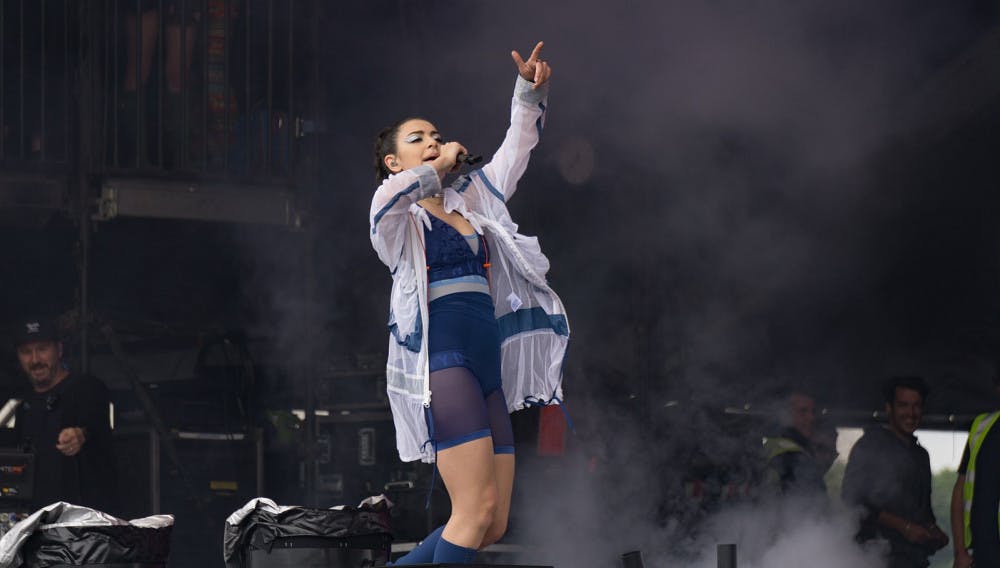Charli XCX’s third studio album, “Charli,” released on Sept. 13, reinvents the pop artist’s identity and reinforces her knack for electronic nuance through innovative production and unique pop invention.
Twenty-seven-year-old Charlotte Aitchison, who performs under the moniker of Charli XCX, has a long history in the pop music industry. In 2012, she collaborated with the Swedish duo Icona Pop for their track, “I Love It,” and in 2014, she was famously featured in Australian rapper Iggy Azalea’s chart-topping single, “Fancy.” Charli XCX has also written for other artists such as Shawn Mendes and Camila Cabello on their recent hit “Señorita.” Much of the sonic energy featured in “Charli,” however, is a far cry from her previous work in the pop industry — it bends, twists and destroys the familiar pop song narrative in order to rework her own artistic image.
One of the stand-out tracks on “Charli” is “2099,” featuring Australian artist Troye Sivan. With booming bass drops and unexpected electronic distortion, “2099” encapsulates Charli XCX’s subversion of pop conventionality. With the lyrics of “Pull up, roll up, fuck up / Fast like a Nascar, never touch us / Got visions, levels, they don’t get me,” Charli XCX rises above her other pop music contemporaries to proclaim a brave new world of unfamiliar sounds.
Charli XCX’s new foray into a sort of anti-pop music does not exactly mean that she is rejecting her former pop music cohorts or proclaiming the genre as invalid. With tracks like “Gone,” featuring Christine and the Queens, Charli XCX harkens back to a familiar chorus-bridge pop structure. But the almost-arrhythmic stratagem and bouncy technical production sets the track as pop-adjacent. The track pushes the boundaries of popular music, uninhibited by the garish pitfalls of the genre, such as predictability and monotony.
The album’s production by the famed founder of PC Music, A. G. Cook, is also showcased in the songs “Next Level Charli” and “Click,” the latter featuring singer Kim Petras and rapper Tommy Cash. Charli XCX flaunts her hyper-autotuned voice as one that is perfectly in flux with Cook’s harsh distortion and sonic manipulations. It is a soundscape reminiscent of some of her previous work, such as the head-rushing “I Got It” off of her 2017 mixtape “Pop 2” and the plastic-poppiness of her 2016 EP “Vroom Vroom.”
In “Charli,” the singer-songwriter also shows that she is not just a hedonistic pop robot — she is also capable of unnerving vulnerability that shines through candid lyricism. In “Cross You Out,” featuring Sky Ferreira, Charli backpedals from her earlier lyrics of self-reliance, and she sings, “When you’re not around, when you’re not around / I’ll finally cross you out.” The mantra reveals a vulnerable side of Charli without neglecting her explosive electronics.
It is fair to say that some tracks on “Charli” fell flat — specifically “February 2017” and “Shake It,” which both feature a number of artists such as Yaeji, Clairo and CupcakKe. While these songs remain slightly misaligned, the album together succeeds in redefining Charli XCX’s vision of a poptimistic future. In “Charli,” the artist carefully crafts her own glitch-pop artistic identity as one that is simultaneously vulnerable and impenetrable.





